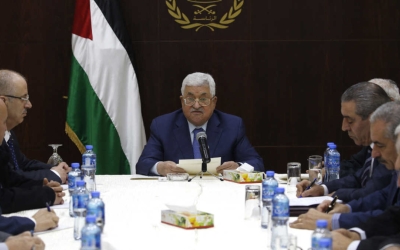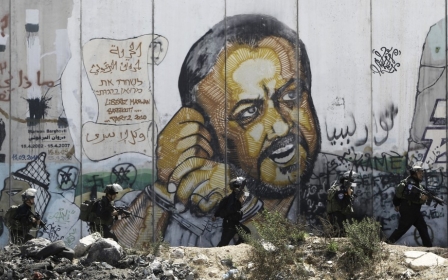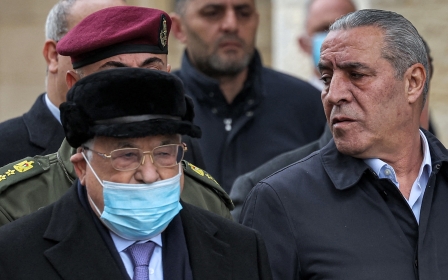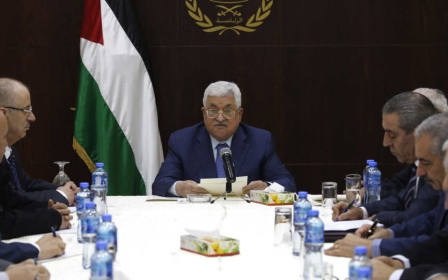US urges Israel to 'transparently investigate' Marwan Barghouti abuse allegations
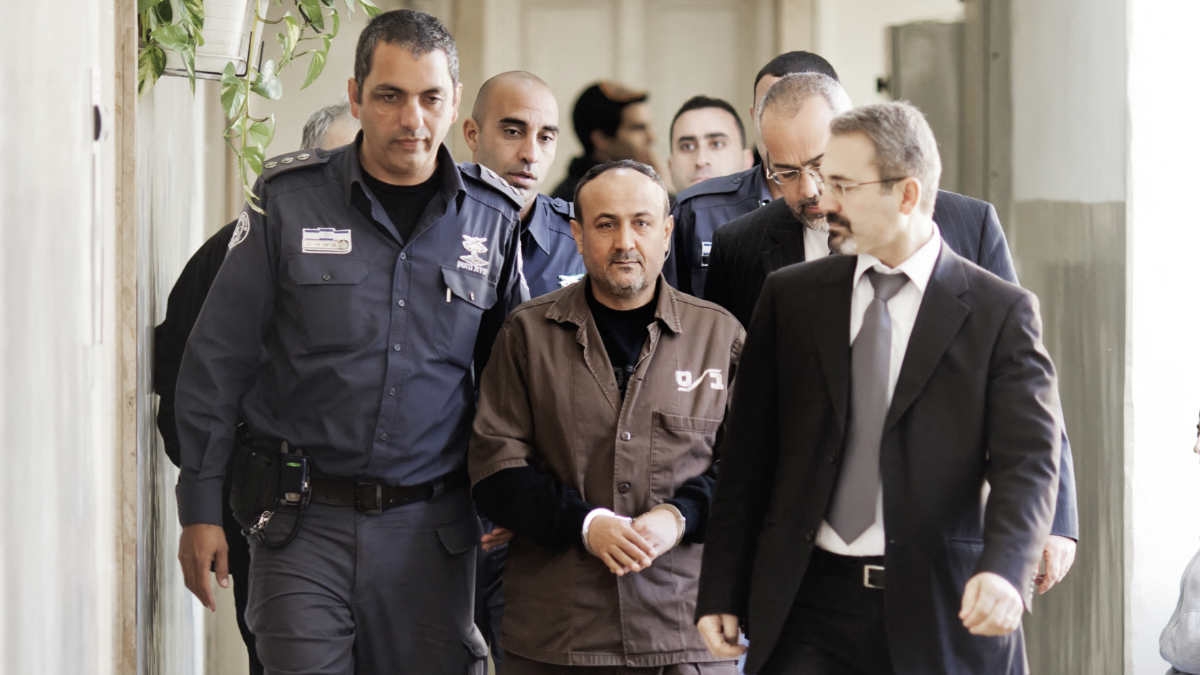
The Biden administration has reportedly raised concerns about Israel’s treatment of imprisoned Palestinian leader, Marwan Barghouti.
The Washington Post reported on Wednesday that the State Department raised allegations of Barghouti’s abuse with Israel, asking them to “thoroughly and transparently investigate credible allegations” and that Palestinian prisoners must be held in “dignified conditions and in accordance with international law”.
Members of Barghouti's family allege that since the 7 October Hamas-led attacks on southern Israel and the subsequent war on Gaza, he has been subjected to physical and psychological mistreatment, including being placed in complete darkness in solitary confinement for 12 days. Barghouti's lawyers are cited in the Post story as saying that Barghouti had several bruises on his body.
The Israeli Prison Service told the Post it has "no knowledge of these claims".
The Washington Post story appeared three days after Arabi21, quoting unnamed sources, said that the US opposed Barghouti’s release from Israeli custody amid ongoing negotiations between Hamas and Israel to reach a hostage deal. The US has taken its position in response to Israel's request to keep him behind bars, according to Arabi21.
Stay informed with MEE's newsletters
Sign up to get the latest alerts, insights and analysis, starting with Turkey Unpacked
Middle East Eye reached out multiple times to the White House and Department of State for comment on whether they opposed Barghouti’s release or the release of other Palestinian officials convicted in Israeli courts of killing Israelis, but did not receive a response by the time of publication.
Two former senior US officials familiar with the Biden administration's thinking told MEE they were not aware the US was opposing Barghouti’s release in the hostage negotiations.
Barghouti is one of the most popular political figures in the occupied West Bank and Gaza and has been described as Palestine’s Nelson Mandela. A former leader of Fatah’s armed wing, he was arrested by Israeli forces in 2002 and sentenced to five life terms in prison for five counts of murder, among other charges.
Barghouti, a key leader of the Second Intifada, is serving his sentence at Israel’s Megiddo prison and maintains he is not connected to attacks on Israeli civilians.
Analysts say Barghouti could be a unifying figure among Palestinians, bridging the divide between Islamist Hamas and Fatah, the secular, nationalist party of Yasser Arafat that he is a part of.
'Abbas has shut down any talk of Barghouti as a potential candidate'
- Diana Buttu, former Palestinian peace negotiator
It’s an open secret among Middle East diplomats and western officials that Hamas wants to obtain Barghouti’s release as part of a hostage deal with Israel, current and former officials have told MEE.
Israel believes roughly 130 hostages are still being held by Hamas and other armed groups in Gaza following the 7 October attacks that killed about 1,200 people and saw over 200 taken back to Gaza as hostages.
Obtaining the release of Barghouti would be a coup for Hamas, analysts say, but would pose troubles for Israel’s long-standing policy of keeping Gaza and the occupied West Bank divided.
Although Barghouti was a member of Fatah's armed wing, he has not directly opposed Israel's existence, calling in a rare court appearance in 2012 for the creation of a Palestinian state along the borders of the pre-1967 war.
“No one in the Israeli cabinet wants to see a united Palestinian Authority governing the West Bank and Gaza Strip, especially with some remnant of Hamas,” Menachem Klein, a former advisor to Israel’s government during the Geneva peace talks, previously told MEE.
'Shut down'
Palestinian Authority President Mahmoud Abbas and his inner circle also view Barghouti as a threat to their power.
“Abbas has shut down any talk of Barghouti as a potential candidate,” Diana Buttu, a former Palestinian peace negotiator, previously told MEE, referring to US appeals for the PA to reform itself and move past Abbas, an octogenarian leader who has clung to power in the occupied West Bank, ruling by decree since 2006.
The PA was borne out of the Oslo peace talks. Its leadership comes from the Palestinian Liberation Organisation, which waged a decades-long struggle against Israel and its occupation of Palestine. In return for limited self-government in the occupied West Bank and Gaza, the PLO recognised Israel’s right to exist and renounced armed resistance.
The PA is dominated by Fatah, a secular nationalist party that has been an arch-rival to Hamas since 2006 when the latter won a majority in the Palestinian legislature and formed a cabinet. Shortly after, fighting broke out between the two. Hamas consolidated its hold in Gaza, and the PA, in the occupied West Bank.
Earlier this month, a senior figure in the PLO said Barghouti was being exposed to "isolation, torture and attempts to coerce, humiliate and beat him, putting his life in danger".
The head of the Palestinian Commission for Detainees and Ex-Prisoners’ Affairs also said Israel is targeting Barghouti, and endangering his life with punitive measures that include "severe beatings, insults, humiliation and confiscation of the Qur’an from cells".
Barghouti is one of roughly 9,000 Palestinian prisoners and detainees in Israeli jails. Since 7 October, Israel has barred the Red Cross and family members from visiting the prisoners.
Talks to reach a hostage deal and truce to the war in Gaza between Hamas and Israel are being brokered by Qatar, Egypt and the US, but have stalled. Since the war on Gaza broke out, more than 32,000 people have been killed, with them being mostly women and children.
Middle East Eye delivers independent and unrivalled coverage and analysis of the Middle East, North Africa and beyond. To learn more about republishing this content and the associated fees, please fill out this form. More about MEE can be found here.


